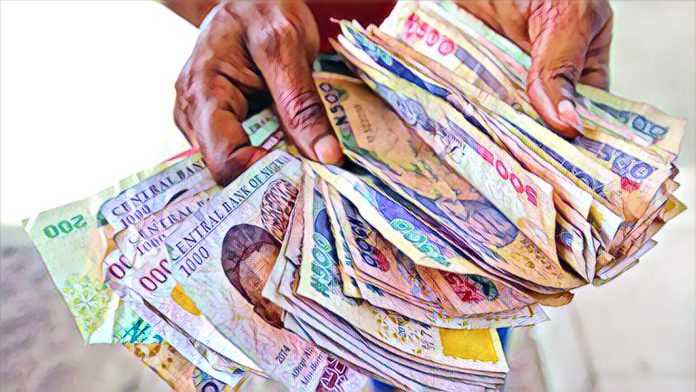The Nigerian naira has been ranked among the worst-performing currencies in Africa by the World Bank, as it lost nearly 40 per cent of its value against the US dollar since June. The global lender said in its latest report on Africa’s economic outlook that the naira’s depreciation was triggered by the central bank’s decision to remove trading restrictions on the official market and allow the currency to float freely.
The report also noted that the naira’s weakness had inflationary effects that could erode the purchasing power of households and weigh on economic activity. The naira, which traded at around N473.83/in June, has fallen to around N800 officially, making it one of the most devalued currencies in the region. Other currencies that have posted significant losses so far in 2023 include the Angolan kwanza, the South Sudanese pound, the Burundian franc, the Congolese franc, the Kenyan shilling, the Zambian kwacha, the Ghanaian cedi, and the Rwandan franc, according to the World Bank.
The report attributed the currency depreciation in some countries to low oil prices, greater debt payments, weak business confidence, and rising input costs. Nigeria, Africa’s largest economy and oil producer, has been hit hard by the slump in crude prices and the coronavirus pandemic, which have reduced its foreign exchange earnings and fiscal revenues. The new administration of President Bola Tinubu, who took office in May, has implemented a series of reforms that included the removal of fuel subsidies and the unification of the exchange rate system.
These measures are intended to improve the fiscal and external accounts of the nation, but they have also led to a surge in petroleum prices and a widening gap between the official and parallel exchange rates. The World Bank projected that Nigeria’s growth rate would slow down from 3.3 per cent in 2022 to 2.9 per cent in 2023, as oil production remained below OPEC+ quota and non-oil economic activity faced policy headwinds.
The report also highlighted that activity in Nigeria’s manufacturing and services sector contracted in August, as weak business confidence and rising input costs drove the downturn. However, the World Bank said that Nigeria had some bright spots in its economy, such as the resilience of its agricultural sector, which grew by 3.4 per cent year-on-year in the second quarter of 2023.
The report also praised Nigeria’s efforts to improve its business environment and governance, as well as its participation in the African Continental Free Trade Area (AfCFTA), which could boost its trade and investment opportunities. The World Bank urged Nigeria to continue its structural reforms and macroeconomic stability measures to enhance its economic recovery and growth prospects. It also called for more social protection and human capital investments to mitigate the impact of the crisis on the poor and vulnerable segments of the population.
[Source] Punch



